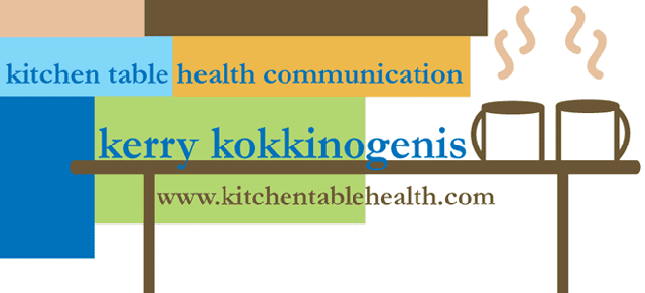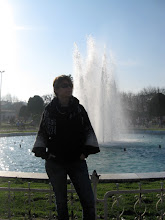1. One fetus ready to be birthed
2. One mother ready to birth (biologically ready; rarely do we ever feel psychologically ready)
3. A supportive community
That's it. Really. Ok, once the baby is born, a few more things are useful, but not nearly as many of those as one could be led to believe!
What not to buy (at least not right away):
An online checklist (pretty typical of its kind) from The New Parents' Guide suggests no less than 42 items (many of which are for several of its kind), which if purchased new would easily cost the new family over $1000 for the big-ticket items (bought modestly based on the website's recommendations) before getting into clothes, wash cloths, diapers, bottles, creams, bras, etc., etc., etc.
So, let's pare down this list a bit. The first item on everyone's list is an infant car seat, preferably one that connects into a whole travel system. If the baby will be going in a car, yes, an infant car seat is the only safe place for her. Of course, we are assuming that you will be transporting your baby in a car. If you birth at home, baby doesn't need to go anywhere any time soon. Once, you are ready to go out into the world with your baby, there are other ways to carry that little one.
In place of the car seat/stroller travel system (which is far less expensive than the fancy infant strollers and jogging strollers, but still cost a couple hundred), may I suggest wearing your baby? At least when walking around (not in a car ever), a wrap or baby pack is far more relaxing for baby (and therefore for the parent in question). In fact, a good one will cost you less than a comparable stroller ($50 for a great versatile one with good instructions, versus $300 easily for a stroller that can accommodate an infant at one time and a toddler later).
Cribs are another big expense; typically $200 for a low-end new crib and another $100 for the mattress, plus covers, sheets, bumpers. Plus, many people get both a crib and a bassinet or pack-n-play (another $70-200) for the new infant. I'm going to propose a crazy idea, one that has been used for millennia (successfully) and is supported by good solid research: co-sleeping. Bed-sharing can be easier, more gentle and safe for all involved. When looking at ways to make your adult bed safe for your infant, definitely read the guidelines. In addition to what the experts will tell you, I found the least expensive route was to move our mattress to the floor (away from the walls). This part of our lives didn't last all that long in hindsight until the baby was ready to move in to her sister's room and a big-girl bed (although my partner would not have believed that at the time). Co-sleeping became a lesson in parenting in general: they grow and change too fast to rush it!
Diapering is another big expense, or can be. From personal experience, I can honestly say that cloth diapers (laundered at home) are not really any harder than disposable. (Parenting is tough; diapering is inconsequential compared to that!) It is also a lot less expensive (a starter set of diapers can cost up to $75, which might get you through a month of disposable diapering.)
There is also the question of whether diapers are necessary at all, when compared to a practice commonly called elimination communication. A friend once told me that "it's not natural" to keep a baby sitting in its own waste all day (not the same waste, of course). I can not say if it is easy or challenging from personal experience as I heard of it after my youngest had been diaper free for several years. If given another chance, I think I would try it though. With dropping the diaper, we can also lose the diaper pail and diaper rash ointments. Not a bad deal in my mind.
The last item on my "needs to be questioned" list is the breast pump. I am so very for breastfeeding (cost and convenience and confidence...), and pumped for both my babies when they were babies and I was away in an office. It is not the usefulness of a breast pump under the circumstances for which it was designed that I question, but it arriving at a baby shower. As Kathy Abbott, IBCLC, (the Curious Lactivist) said at a basics of breastfeeding workshop given by the Nursing Mothers' Council, giving a pregnant woman a breast pump gives new mothers the message "you can't breastfeed without this machine," not a helpful message at all. A pump, if needed, should be purchased once you know what you need it for; breastfeeding only requires a baby and the mother.
What you really will need:
This all takes me to the one item on my list that the checklists don't include (maybe because it can't be purchased): community. The mother's partner (you know, the snuggly one on the other side of the bed) is a good place to start. There are a million ways for the partner to be involved with the mom, with the baby, with parenting, from the beginning. This can relieve the stresses of adapting to parenthood on mom (at least there's someone else in this with you!), and keep everyone connected.
Community also extends beyond this tiny family unity, though. In all the advice to prevent or decrease the stresses of having a new baby, community comes up again and again. This is both practical (not trying to do it all, have a list of things visitors/family/friends can do for you), and emotional (having people who listen and understand.) New parents should take the time to recognize that this is a big transition, all new parents go through it (although differently), you are not alone! Surround yourself with people who are supportive and helpful. Other new parents can be found in the baby/kid section of the local library and at the local (toddler-friendly) playground during school mornings. Go for walks and say "hi" to people. Offer the kind of friendship you are looking for; it can inspire others to return the favor. It all comes back around to you in time.
In addition to this peer community, it is also good to know where you can get sound advice if you need it. Finding a pediatrician that is respectful of your parenting choices is well worth the effort. There are also organizations and other resources to help you figure out the logistics of your choices. For example, if you run into challenges with getting breastfeeding started, for example, there are volunteer organizations (a few) with well trained volunteers, and professionals that can help.
So, make sure you've got good people around you, and then enjoy the fleeting days of babyhood. At least you know that most of the stuff isn't worth worrying about.

